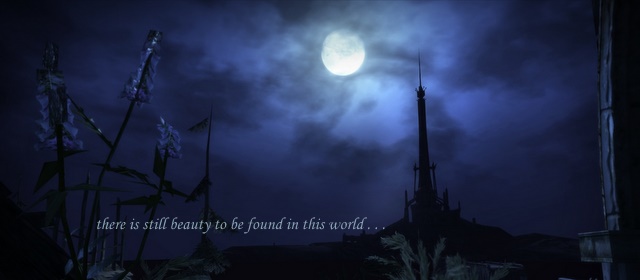The used video game market, a subset of the video game industry, was estimated at around $2.5 billion worldwide in 2009. Despite its success, many video game publishers dislike the used video game market because the publishers do not see any revenue from used video game sales.
So what can they do about it?
Most would probably like to eliminate the used video game market altogether. This would prevent companies like GameStop, whose profits come mostly from the resale of used video games, and online companies like eBay and Amazon, from selling used video games. How?
Well, if video game transactions are characterized as sales, the video game company cannot restrict what consumers do with their purchased copies of the video game. Under the first-sale doctrine, if a video game company sells a video game to a user, the user may resell the game without the company’s interference. The company can only control the "first sale" of the video game - that is, the company can only control the first sale to the customer. After that initial first sale, the company can't control subsequent dispositions of the game.
However, if a video game company licenses (as opposed to sells) a video game to a user, then the company "retains ownership [of the game] but authorizes [the consumer] to carry out certain acts . . . generally for a specific period of time and for a specific purpose."[1] So if video game companies can characterize a transaction with a user as a license as opposed to a sale, then they're in luck! - just slap some restrictive license terms preventing the user from re-selling the game and voila! say bye-bye to the used video game industry.
However, if a video game company licenses (as opposed to sells) a video game to a user, then the company "retains ownership [of the game] but authorizes [the consumer] to carry out certain acts . . . generally for a specific period of time and for a specific purpose."[1] So if video game companies can characterize a transaction with a user as a license as opposed to a sale, then they're in luck! - just slap some restrictive license terms preventing the user from re-selling the game and voila! say bye-bye to the used video game industry.
bon voyage!
Although there haven't been any cases addressing whether the transaction between video game companies and consumers are sales or licenses, there have been analogous cases in the software industry. Courts are split (as per usual), but there are some clear takeaways from the myriad caselaw.
First, some courts hold that whether a transaction is a sale or a license depends heavily on an analysis of the actual agreement between the parties.[2] This approach is very case-specific. If a court determines that the agreement reads more like a sale than a license, then the transaction is a sale and the first-sale doctrine applies. For example, if the contract between the parties uses "sales" language, such as references to "sellers" and "resellers," then it is likely a sale and the first sale doctrine applies. So if the user wants to resell the game, the company can't do anything about it.
Second, some courts focus heavily on the substance of the transaction rather than what the actual agreements calls the transaction to determine whether it looks more like a sale or license.[3] For example, if there is a single price paid at the time of the transaction, the license is indefinite, and there was transfer of title in the product, then a court would be more inclined to say it was a sale, even if the transaction itself was labeled as a license.
Third, if you live in the Ninth District (all of us on the West Coast), you unfortunately have to hold onto that crappy video game you bought without checking the reviews first because you're unlikely to be able to resell it (at least legally). Perhaps the most significant case addressing this issue is Vernor v. Autodesk, which came down in September 2010 and was heralded as the demise of the used video game industry. The Ninth Circuit held that "a software user is a licensee rather than an owner of a copy where the copyright owner (1) specifies that the user is granted a license; (2) significantly restricts the user's ability to transfer the software, and (3) imposes notable use restrictions."[4]
That's bad news for most of us, assuming courts do choose to look at the software industry when looking at video game cases. As long as the video game company says that it's a license, says I can't resell the game, and includes other restrictions (for example, no reverse-engineering, no modifications, no circumventing any DRM or other protections, etc.), then it was a license and not a sale. If it's not a sale, then the video game company can control what I do with my copies of the game - I have to operate within the boundaries of the license because I legally don't own the game but am only licensed a copy of the game.
Looks like you're going to be stuck with your copy of Rogue Warrior, which got a whopping 1.5/10 on IGN - all because you can't resell it (well, it's doubtful you could have resold it anyway...).
[1] World Intellectual Property Organization, Understanding Copyright and Related Rights 5, available at http:// www.wipo.int/freepublications/en/intproperty/909/wipo_pub_909.pdf (last visited Nov. 11, 2010).
[2] Novell, Inc. v. CPU Distributing, Inc., 2000 U.S. Dist. LEXIS 9975 (S.D. Hou. 2000).
[3] SoftMan Products Company v. Adobe Systems Inc., 171 F. Supp. 1075 (C.D. Cal. 2001).
[2] Novell, Inc. v. CPU Distributing, Inc., 2000 U.S. Dist. LEXIS 9975 (S.D. Hou. 2000).
[3] SoftMan Products Company v. Adobe Systems Inc., 171 F. Supp. 1075 (C.D. Cal. 2001).
[4] Vernor v. AutoDesk, Inc., 2010 U.S. App. LEXIS 18957, *25.





No comments:
Post a Comment